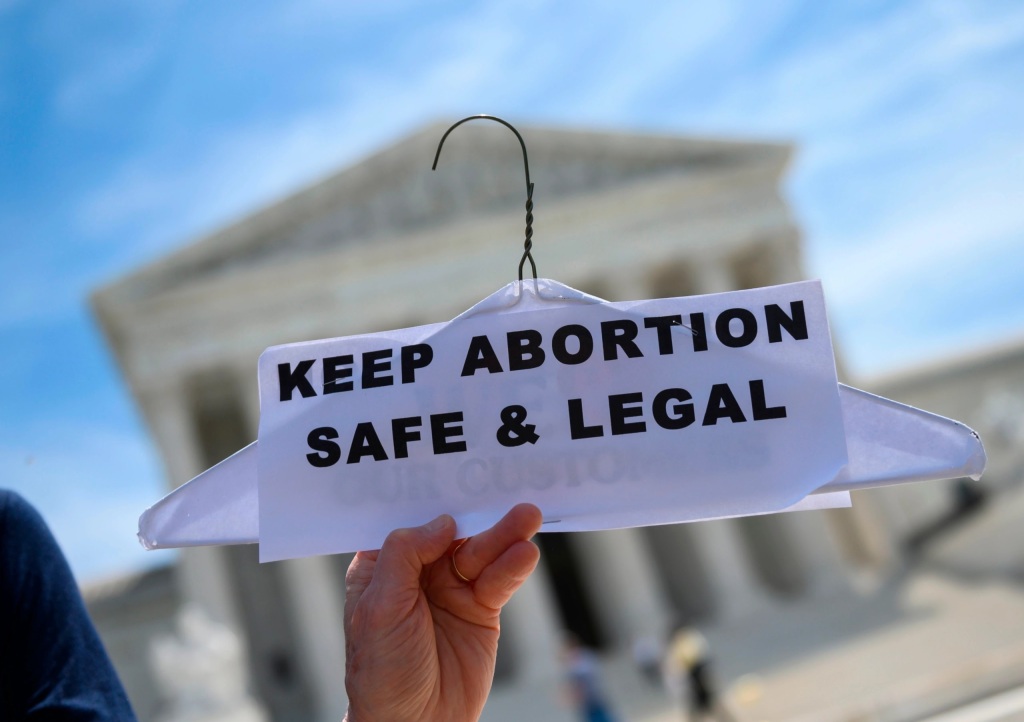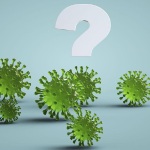Together we served


This is probably not the post you think it is. It’s Veteran’s day, which if you don’t know me or haven’t seen my previous posts on the matter, I’m not a huge fan of it. Sure, celebrations, free food, blah, blah, blah, all great. Don’t get me wrong, I don’t want to come off as the person who doesn’t like a party, or worse someone who wants to berate people for having fun. No, I just don’t particularly care about the day. But since it’s here, I will give my semi-regular reminder that Veteran’s day isn’t about the Veterans at all. It’s about feeling good about war and giving politicians an excuse to, “out appreciate” each other. I mean what gives me the right to complain about how Veterans are being treated when I get a free* meal once a year at Applebees?
*restrictions and exclusions apply, food may be stepped on, offer not valid if still living, see store trash can for details,
(more…)The cost of freedom


Land of the free, right? Call me cynical, call me jaded, but it doesn’t feel like that these days. People often wonder why, historically speaking, no one did anything when atrocities are happening. I’m left reminded that evil people, objectively bad people who should never have a modicum of power, come into power because it’s easier to let it happen than than it is to do something about it. Put simply, it’s hard to take collective action when you are comfortable and by the time you’re discomforted enough to actually do something, oftentimes it’s far too late.
(more…)The dead don’t speak


In combat it’s easy to forget when someone is killed. Forget isn’t the right word, but you’re fighting to survive, so you literally don’t get the chance to process the loss in the moment. All good things come to an end however and it’s often not right away that it sinks in. You experience that fresh loss for a long time before it sets in. You forget that the person has died. You look for them in the group you’re serving with until it clicks. The truth is, the most painful part of loss isn’t the initial death. It’s having to live loss that over and over before it finally becomes your reality.
(more…)Freedom fight


Well yesterday I quietly had a small breakdown in the good sense because I was finally getting the care I wanted from my healthcare providers and when I logged onto twitter for the evening I found a flurry of activity regarding something the supreme court was doing. Wow was I in for a shock when I realized what was going on. I hoped that in my lifetime I wouldn’t see something like this happen. Afterall we were slowly chipping away at the problem, but here we are.
(more…)COVID Confusion


Well the CDC recently changed its guidelines from 10 days isolation if infected to 5 days. This was a move fully done for the benefit of big business and not people, but hey sometimes we’ve got to lube the gears of the economy with blood. Specifically, the blood of people who are poor, but who cares about them anyway? I think there’s a fine line between government protection and government control, but we’re so far removed from any sort of protection I think it’s not a conversation worth having.
(more…)Twenty years later


I was still in high school when the towers fell. It’s weird to think that was twenty years ago, it doesn’t feel like it’s been that long. There’s a whole generation of young adults who were born after that event and somehow my brain doesn’t like that thought. It’s a reminder of the life I lived I guess and all the years that were shaped by that event. When the towers fell, child me — because really I was still just a kid — bought into all the propaganda and decided that I would serve my country. I obviously have mixed feelings about that choice.
(more…)Fourth of July


I’m a veteran. I have mixed feelings about most patriotic holidays (okay, all patriotic holidays) and today is no different. We could all use a day off and I honestly couldn’t care less about how the holiday is celebrated. The only real issue I have with how it’s celebrated is with the fireworks. The world is on fire at the moment (literally) and we don’t need to help it along. My main issue with the holiday is (of course) toxic patriotism and the inevitable misogyny and white supremacy that comes with it. Of course, that is how America was built…
(more…)On Memorial day


I come from a somewhat long line of military service. When my grandfather immigrated to the US he served in the Navy and fought in the Korean war to become a citizen. My father served in the Army and enlisted specifically to fight in Vietnam. Then I went off to the Marine Corps shortly after 9/11 and subsequently Iraq. War is hell, but then again so are people. It’s Memorial day, which means today is my time honored tradition to tell you all to just stop.
(more…)VA healthcare in a pandemic


With the pandemic stretching now over a year, which really feels like twenty, eventually healthcare was going to be an issue for me. I’ve already had to have a surgery during the pandemic, which was nerve wracking not because of the surgery, but because of COVID. Well it’s become a struggle to keep trying to put off getting care when I’m someone who needs pretty regular care. I went from bi-weekly appointments to once every 6 months or more, not ideal.
(more…)On water


Water, it’s easy to take for granted when, with the flick of a wrist, you can get it pumped directly into your sinks, your showers, your toilets. The human body can survive for a substantial amount of time without food, that number varies depending on body composition and other factors, but it’s typically estimated anywhere from 8 to 21 days. That isn’t to say food is unimportant, just that on the hierarchy of needs, water is king. Depending on the circumstances, you may not even last a full day without it, so what do you do when you don’t have any?
(more…)A violent transfer of power


Strap in kids, it’s inauguration day here in the US. Yep, Trump is out and we have a president again. My disdain for Trump is no secret, the amount of suffering and death he’s caused by his dereliction of duties, incompetence, and lack of empathy is incalculable and even with him gone, the damage he’s done will last at least a generation, if not more. Let’s be clear, this wasn’t a peaceful transition, the amount of military at the capitol says as much.
(more…)On turning the other cheek


Unity, noun, the state of being united or joined as a whole. Less than a week after a failed attempt at a coup, the GOP is now calling for unity. Like a concerted and years long effort to overtake the government was some accident and we should just forgive and forget. I mean let the person who hasn’t tried to overthrow the government throw the first stone! No? Anybody?
(more…)Not with a bang…


Well yesterday happened and wasn’t some weird fever dream I thought I was having. For those of you who aren’t in the US right now, good. For those of you who are and live in some underground fortified bunker with only internet access to my blog, weird, but we had a coup attempt. As in a literal attempt to overthrow the government. It’s okay though, because they were white supremacists and in the US we give them special treatment.
(more…)The power of indifference an open letter to the scientific community

Suddenly your absent-minded thoughts are shattered by a loud noise. Quickly you look around, to the left of you, you see it, and a child has been shot, you see them bleeding heavily. People are standing around with their phones, some calling emergency services, some filming, but most looking confused and scared. No one is actively trying to help; you hear that they are afraid that the person, or persons, who shot the child is still around. What do you do next, do you choose indifference, or do you help?
Trumped: Why the election is a symptom of a bigger problem

Right now you are probably thinking that I am going to unleash some poorly thought out diatribe about president elect Trump. No, that is not going to happen. It is not going to happen because he is not the problem, you are the problem, I am the problem, and we are the problem. That goes for those of you who are atheists, Catholics, Muslims, conservatives and liberals, or anything in-between.
Why everyone wants to help the sick — but not the unemployed

New research explains why healthcare costs are running out of control, while costs to unemployment protection are kept in line. The answer is found deep in our psychology, where powerful intuitions lead us to view illness as the result of bad luck and worthy of help.
Taser shock disrupts brain function, has implications for police interrogations

More than two million citizens have been Tased by police as Taser stun guns have become one of the preferred less-lethal weapons by police departments across the United States during the past decade. But what does that 50,000-volt shock do to a person’s brain?
Women, do you want to be a leader at a teaching hospital? Grow a mustache!

Thirteen percent of department leader positions at top academic medical institutions in the United States are held by women, while nearly 20 percent are held by men with mustaches. The findings of the tongue-in-cheek study, an analysis of more than 1,000 headshots of department leaders at top National Institutes of Health-funded academic medical institutions, provide a new context for examining gender disparities in the field.
Students in credit crisis
New research from the USA suggests that college students are well aware that they should be personally responsible for their finances, including their card obligations, but this awareness rarely correlates with limiting the debts they accrue during their time in higher education.
On Wikipedia, politically controversial science topics vulnerable to information sabotage
Wikipedia reigns. It’s the world’s most popular online encyclopedia, the sixth most visited website in America, and a research source most U.S. students rely on. But Wikipedia entries on politically controversial scientific topics can be unreliable due to information sabotage.
Health factors influence ex-prisoners’ chances of returning to jail
Ex-prisoners with a history of risky drug use, mental illness or poverty are more likely to end up back behind bars. Those who are obese, are chronically ill or have attempted suicide are more likely to remain in the community. These are some of the findings from an exploratory study into health-related factors that could be used to predict whether a person released from prison will end up in custody again.
The new normal? Addressing gun violence in America
Mass shootings have a significant impact on our individual and collective psyche, especially when they happen at schools. Despite the fact that children die every day from gun violence, school shootings upset us in ways that are difficult to comprehend. In our minds, schools serve as safe havens for children. When that image is shattered, the unpredictability and randomness of such heinous acts leave us wondering if anywhere is safe anymore. Thus, the shock and horror expressed following these events is not surprising.
Restricting firearms access for people who misuse alcohol may prevent violence
Restricting access to firearms for people who misuse alcohol could prevent firearm violence, but policies that more clearly define alcohol misuse should be developed to facilitate enforcement, according to a review of existing research and public policies by the UC Davis Violence Prevention Research Program.
Which is most valuable: Gold, cocaine or rhino horn?
Many of the world’s largest herbivores — including several species of elephants, rhinoceroses, hippopotamuses and gorillas — are in danger of becoming extinct. And if current trends continue, the loss of these animals would have drastic implications not only for the species themselves, but also for other animals and the environments and ecosystems in which they live, according to a new report by an international team of scientists.
UK Researchers find parental perception of child’s weight is skewed
Childhood obesity affects more than double the amount of children it did 30 years ago, according to the Centers for Disease Control and Prevention(CDC). To figure out why the rate is increasing researchers studied the relationship between parents and their obese children to determine how to improve pediatric health. The study actually reveals how poorly parents rate their own child’s weight issues — at least until they reach extreme levels of obesity.
Biofuel, good for the environment if you’re eating less
When the government first changed policy to require ethanol in gasoline, we were told it would reduce our carbon footprint. Then food prices rose significantly and corn in particular saw the largest price rise. This was because corn is a staple in production of almost any other food from eggs to beef, but the policy made environmental sense. Well it made sense, until you found out that the new policy also took into account people eating less.
Research on medical abortion/miscarriage may change international routines
Two scientific studies are expected to form the basis of new international recommendations for the treatment of medical abortions and miscarriages. One of the studies shows that it is possible to replace the clinical follow-up examinations recommended today with medical abortions that include a home pregnancy test. The other study shows that midwives can safely and effectively treat failed abortions and miscarriages in rural districts of Uganda.
FDA struggles to define what “natural” means for food labels
After decades of debate there remains no generally accepted definition of a “natural” food product. Despite a gamut of products with the label prominently displayed, it has caused a headache in lawsuits for the government who have yet to define “natural”. According to new research, while regulatory agencies have refused to settle the issue, they may be under new pressure from those consumer lawsuits.
Study shows modest reductions in ER visits from the ACA implementation
It’s future might still be in the air to those of us not on the supreme court, but two patient groups created by the Affordable Care Act (or ACA, also known as “Obama care”) – Medicare patients enrolled in federally designated patient-centered medical homes and people under age 26 who are allowed to remain on their parents’ health insurance – had slightly fewer emergency department visits than they had before health care reform. However, there was no change in the rate of the most expensive types of emergency visits: those that lead to hospitalization.
Political gridlock: Blame the men
It feels like the government moves at a snails pace sometimes, it takes forever for any change to come about and even then it is typically not even “change.” This couldn’t be more evident than during the political gridlock that led to the 2013 US federal government shutdown, the leading voices for compromise were the handful of female U.S. senators — only 20 percent of the overall legislative body.
Finding the real cost of climate change
How much does global warming really cost the world? Determining the Social Cost of Carbon helps put a actual dollar value on the climate damages per ton of CO2 released, and is used by — among others — policymakers to help determine the costs and benefits of climate policies. Remember, even on a global scale, the bottom line will always be profit. But now a group of economists and lawyers urge several improvements to the government’s Social Cost of Carbon figure that would impose a regular, transparent and peer-reviewed process to ensure the figure is reliable and well-supported by the latest facts.
Our increased carbon dioxide output causes global warming and now we have proof
Global warming, it’s a bigger deal than some people seem to realize. For years science has pointed to the increased carbon dioxide output as the main reason for man-made global warming. However, there has been no evidence to directly link CO2 output to global warming, well until now. Research has identified, for the first time, how global warming is related to the amount of carbon emitted.
Even more bad global warming news
While everyone (but seemingly the media) is on basically the same page with the fact that global warming is a human caused problem — and one we need to fix the effects of this change are still coming to light. Human-induced changes to Earth’s carbon cycle – for example, rising atmospheric carbon dioxide and ocean acidification – have been observed for decades. However, a new study showed human activities, in particular industrial and agricultural processes, have also had significant impacts on the upper ocean nitrogen cycle.
A look at Air Pollution and Your Body
We have all probably seen stories from China on the horrid air pollution there. Accompanying those reports of course are the statistics for air pollution that deaths have caused. For the record, the World Health Organization estimated that ambient air pollution caused 3.7 million premature deaths (worldwide) in 2012 alone – yet what exactly happens to your body when it encounters pollutants?
Hobby Lobby and the War on Race and Women
There is a war going on and it’s not on foreign soil. This war is the fight for the status quo, a war where you are only worth your skin color, a war where you are only worth as much as your gender. This war is all around us, we see it everyday, yet we let it quietly pass us by. We do this because, in all actuality, we are losing this war. I don’t blame you if you don’t believe me, you shouldn’t. Frankly I would read this to see the history of this war in action. But where that post focused more on color, I am going to be focusing more on gender and it isn’t pretty.
When Crazy becomes a Crime
My friend has a glass eye, you would never notice and unless you knew the story you might not think anything of it. His older brother did it. Yes, you read that correctly, in a schizophrenic rage he gouged out his eye and almost killed him. He never held what happened against his older brother, he was sick, how could he? At least that was his logic. The courts didn’t agree, he would not be allowed to visit his brother while he resided in prison, even ten years [and several appeals] after the fact. Unfortunately he isn’t alone, new research has linked tighter Medicaid policies governing antipsychotic drugs with increased incarceration rates for schizophrenic individuals.
More Horror from Deepwater Horizon Oil Spill
Deepwater Horizon, it was a technological feat to get oil that deep in the water. Then the spill occurred, when it happened I honestly think more people were in shock than angry. We had never dealt with an oil spill like that before, much less one in the heart of such a huge fishing community. Louisiana business suffered and probably continues to suffer from the spill and the tons of oil that were spilled. Frankly the people in charge freaked out and just did everything they could to clean it up as quickly as possible. That unfortunately included the use of lots and lots of dispersants [chemicals to break up oil so nature can degrade and break down the oil more quickly].
Saving the Rainforest and the Consequences
The road to hell is paved with good intentions. This seems even more true when a new study came out that shows, when it comes to fixing deforestation and forest degradation, even good intentions can lead to bad outcomes. I hate to sound like a broken record when it comes to this whole “climate change” stuff, but it really needs to be addressed sometime…
A Startling New Climate Change Revelation!
Call out the troops, call the Marines, we need tanks, lots of tanks. Well okay, maybe not. Brute force won’t stop global warming and thanks to a new study on the subject it turns out, not much else will either. Oh there is of course the obvious lower CO2 emissions, but that’s not a big deal. I don’t know why it takes scientific studies to tell us this, but the greenhouse gas CO2 that we pump out in millions of tons — roughly 88 million tons, US of course since metric tonnes has to be different, or maybe that’s our fault — is bad for the environment.
I know we tend to think of ourselves as intelligent and generally I won’t argue otherwise, but let me just say… really?
Climate Engineering: We can’t Build it Better after all
We have the technology: we can rebuild you, better, stronger, faster. Well we may have been able to build the six million dollar man better than before, but as it turns out, we can’t do the same for the environment.
For anyone actually listening to science [and I really hope you all are] it isn’t getting any cooler. Thanks to the rising CO2 levels in the world it’s only going to get hotter and with it, the weather more extreme. Yet some people out there — and unfortunately for us, the people with the power to actually make a change– simply don’t care. To them, even if it gets hotter, we can fix it. After all we have the technology.
Climate Talks and Game Theory: A better Approach
Climate change talks, it’s like yelling at a wall and hoping it becomes a window. For over two decades, members of the United Nations have tried to forge an agreement to reduce global greenhouse gas emissions. Thankfully a new paper published offers a different approach to the problem using game theoretical modeling. (more…)
Genetically Modified Food: Myth and Legend

Vermont, not quite the armpit of the United States, but not a place I would live [personally speaking of course]. Still, looking at history Vermont was the first to ban slavery [good], but now they are the first to do something else too, they are looking to ban all food that is genetically modified if it is not properly labeled [bad].
This bill is set to start a wildfire across the US with food scares, like any science scare, is easy to start and hard to stop [if at all]. Genetically modified food has helped cushion the ever growing population and the need to feed that population. People will [undoubtedly] argue otherwise, but all food is genetically modified one way or another.
A [Real life] Doomsday Prediction
Fire, brimstone, four horsemen, doomsday seems pretty bleak in the biblical context. From a scientific perspective, global warming and the need for fresh water will probably plunge people into chaos, which seems like a more likely doomsday model. Unfortunately there are other ways in which the world could come crashing down around us, today I wanted to shed light on just one of those ways.
The most plausible [in my opinion] doomsday scenario comes not from an external force but from our imagination. Let me explain, most money that we deal with is just a placeholder, a social construct, a number on a screen and when dealing with the stock market, it gets even fuzzier, you can essentially make bets for money on [you guessed it] money.
5 Reasons Why Science is Losing the War

Science is losing an unseen war and like any war it isn’t without its casualties. The true body count won’t be evident, not at first. This isn’t a war over land, or freedoms, it is a war on ignorance, a fight for the future. Science has brought us a level of comfort and connectivity we have never really seen. Unfortunately that connectivity is being used against us, allowing people with dubious motives to shout from the rooftops bold faced lies and a call for people to follow.
Radiation is for the Birds… at least at Chernobyl

Twenty eight years ago yesterday brought about the worst nuclear disaster to date, I am [of course] talking about Chernobyl. Chernobyl was supposed to be the flagship of a peaceful atomic energy program by the USSR. It’s easy to think with everything going on in the Ukraine now, that the incident is far in the past and is never coming back, neither of those is the case.










































